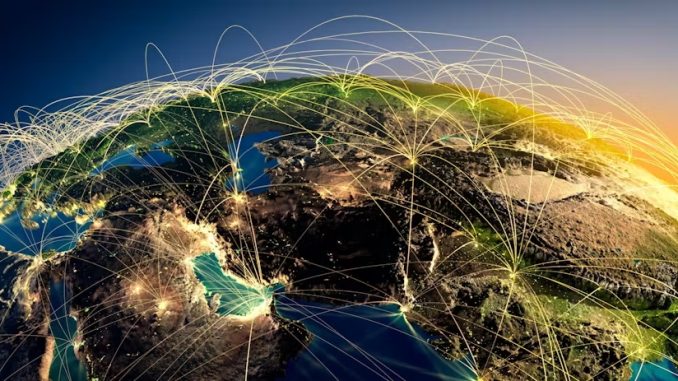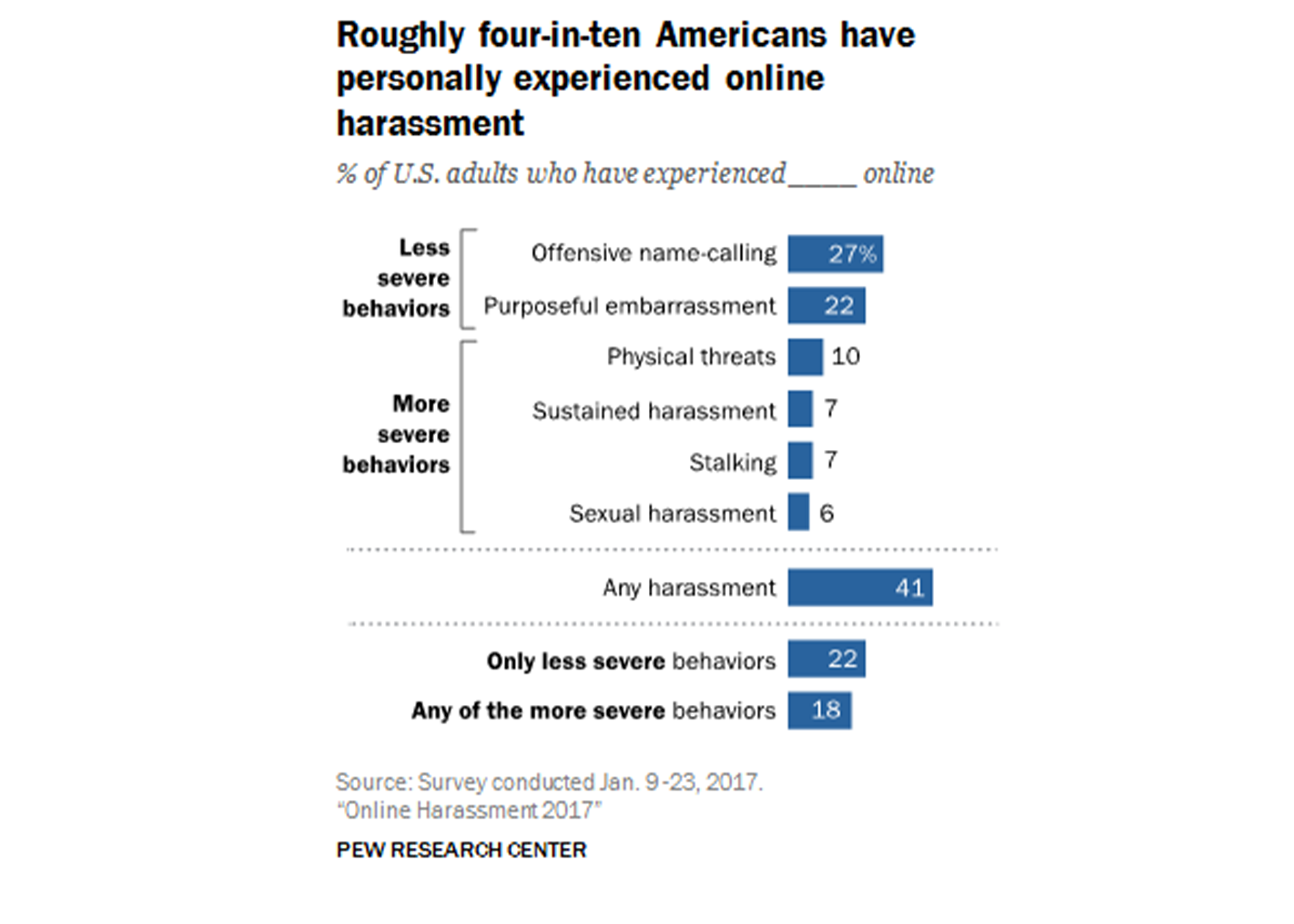
Is the Internet really perfect now?
The emergence of the Internet can be said to be a historic innovation, which has completely changed people’s lives and brought them into a new cyber world. In terms of life, individuals can not only communicate with strangers thousands of miles away but also engage in video calls to connect more deeply. The Internet can also relieve people’s stress, with a large number of video games, movies, and TV series giving people a variety of outlets to vent their stress.
In terms of information access, the Internet breaks the geographical limitations, users can instantly access global news, academic research, and technical information through search engines, online databases and so on. At the same time, the Internet has also performed very well in the economy, the rise of e-commerce platforms has further improved people’s quality of life, and the emergence of mobile payment has made the transaction process more convenient (Navarria, 2016, November 3). At first glance, this seems like a flawless “world,” but is that truly the case?
Obviously not! Sure, the Internet is a relatively free cyber world, but with more freedom comes more danger. Because people advocate freedom and it is their right to express themselves freely on the Internet, it is difficult to have effective laws or policies to regulate the content of what users post on the Internet. Therefore, online harassment has become more and more serious. Reasons for online harassment featured political or religious beliefs, physical appearance, race or ethnicity, gender, and sexual orientation. In a number of high-profile cases, online harassment has evolved into hate speech on a large scale (Flew, 2021).

According to a survey by the Pew Research Center in Figure 1, Four-in-ten U.S. adults have personally experienced harassing or abusive behavior online; 18% have been the target of severe behaviors such as stalking, physical threats and sexual harassment (Duggan, 2017). A survey conducted by the Social Survey Center of China Youth Daily in collaboration with Wenjuan.com, involving 1,000 young people, showed that 65.3% of the young people said that they or people around them had experienced cyberbullying. 71.9% felt that cyberbullying was becoming more frequent [Translate version] (China Youth News, 2023).
Cyberbullying has gradually become a public hazard in the digital realm. The fact that you can hide behind a username and that some people think they’re invincible just because they’re part of a bigger group, makes some people act really badly. At the present time when we are deeply linked to the Internet, everyone may become a victim of cyberbullying.
Comparing China’s and Meta’s Approached to Online Speech Governance
In order to create a better cyber environment and make the cyber world safer, governments and organizations worldwide have adopted various measures to regulate online speech. Two distinct models stand out: one is represented by China, which carries out government-led cyber security initiatives, and the other is represented by Meta, which is represented by the enterprise’s self-regulation, and carries out the platformized management of online speech. Both have their pros and cons, but both play an important role in the management of online speech.
China has established a governance system led by the government, anchored in laws, and supported by multi-platform collaboration. Legally, it builds on the Civil Code, Public Security Administration Punishment Law, and Criminal Law, supplemented by specialized legislation like the Cybersecurity Law and Personal Information Protection Law. In 2023, multi-agency guidelines on punishing cyberbullying were issued, followed by the 2024 Regulations on Cyberbullying Information Governance, clarifying legal responsibilities and standards for the governance of cyberbullying.
In terms of platform, each network platform has established systems such as user registration, account management, information release review, monitoring and early warning, identification and disposal in accordance with legal requirements. Platforms like Weibo implement keyword filtering, manual reviews, and AI to screen and remove harmful content, suspending violators within 48 hours of reports. Although this method is effective, there are also some problems: First, the number of illegal content every day is huge, and some metaphorical content is difficult to identify. For example, some netizens evade censorship through homophones, which weakens the governance effect. Moreover, it is difficult to strike a balance between free speech and hate speech. Because too strong regulation will restrict citizens’ freedom of speech, while too weak regulation will not be able to effectively curb the spread of hate speech.
After watching this video, we can understand that Meta is corporate self-regulation, guided by internal policies (community standards) and pressures from U.S. law and international stakeholders. Meta has long relied on Section 230 of the Communications Decency Act for legal immunity and developed content review rules centered on community guidelines. It has relied primarily on internally developed community rules to regulate content, such as explicitly prohibiting hate speech, harassment, bullying, intimidation, defamation, and pornographic violence. In terms of enforcement, Meta mainly uses an AI system to identify multi-lingual hate speech, and cooperated with a third-party fact-checking program to improve accuracy (now getting rid of it), and uses artificial intelligence technology to identify and delete posts and accounts that violate community rules through user reporting and auditing mechanisms (Hutchinson, 2025, January 7).
However, Meta’s shortcomings are also extremely obvious, first of all, the problem of algorithmic bias is prominent (e.g., high rate of misjudgement of minorities), some discriminatory remarks against minorities are not dealt with in a timely manner, while some normal remarks may be misjudged. At the same time, as its users are spread all over the world, the cultures and laws of different countries and regions differ greatly, and it is difficult to adapt to the diversified needs with unified management standards. Especially in many developing countries, governance is lagging due to the lack of localized teams.

Due to the conflict between commercial interests and legal responsibilities, Meta has constantly adjusted its checking standards (e.g., restricting hate speech). After getting rid of third-party fact-checking program, Meta shifted crowd-sourced Community Notes system, just like X-style, to increase transparency. Zuckerberg says that the changes are about getting the company back to its original mission, which is to make everybody more connected (Miller, 2014, February 24). But actually his main aim is business growth and maximizing Meta’s capacity to dominate the competition. It is obvious that Meta is making these changes to appease right-wing supporters, and align with the views of American President Donald Trump (Hutchinson, 2025, January 12). So these actions have been seen as a way to shirk its responsibility and move away from its original purpose.
How to create a safer cyberspace environment
China and Meta have their own strengths in cyberspace governance. China focuses on creating a safer online environment in terms of government regulation, legal protection, and digital literacy education, while Meta is unique in its application of technology and community building. Combining the strengths of both sides, we can create a better online environment from the aspects of law, technology, education, and international cooperation and exchange. Based on this understanding, I summarize the following suggestions:
Strengthen Collaboration between Platforms, Governments and Laws

I think for network regulation, we should first learn from China’s experience. I mean the government should play a leading role in establishing a robust network regulatory system. While China has introduced the Cybersecurity Law and the Data Security Law to clarify the boundaries of cyber behavior and protect citizens’ privacy, cyber regulation platforms like Meta should also follow the legal regulations of each country and region. At the same time, international legal cooperation should be strengthened, and countries should work together to develop unified legal standards and enforcement mechanisms for online harassment with multicultural or local characteristics, so that violators have no place to hide.
Advance Technological Innovation and Application
With the upgrade of digital technologies and application innovations, the scope of cyberspace is expanding, and the way information is produced and disseminated continues to change. I suggest that we should give full play to the resource advantages of the Internet industry and support scientific research institutions and think tanks to conduct in-depth studies on the new forms, venues and development trends of cyberviolence, and to propose targeted response strategies and technical solutions.
Meta offers significant insights in AI technology, such as using AI for content recommendations and filtering harmful information. China is also developing rapidly in areas such as 5G, cloud computing and AI. The two sides can strengthen technical exchanges and jointly develop more advanced algorithms for accurately identifying harmful content such as cyberbullying and false information, and improve cybersecurity protection, such as developing smarter firewalls and encryption technologies to safeguard user data security and privacy.
A major goal and feature of algorithmic selection applications is the personalization of processes and results. In a nutshell, governance by algorithmic selection is automated, instantaneous (real time), predominantly based on big data, partially self-learning, and always context-related/personalized, applying customized selection criteria. (Just & Latzer, 2019)
According to the above quote, it can be seen that nowadays AI is developing rapidly, compared with the traditional system, AI has the ability of self-learning, the combination of AI and the censorship system can greatly improve its screening ability, so that the possibility of avoiding censorship through the secluded characters, homophones and obscure texts are greatly reduced. Therefore, it is extremely important to strengthen the audit of platform content through technology, and the combination of manual audit and intelligent audit can greatly ensure that harmful content is found and dealt with in a timely manner.
Strengthening Digital Literacy Education
In 2017, China issued “the Medium- and Long-Term Youth Development Plan (2016–2025),” which pointed out that “the Internet should be regarded as an important position to carry out ideological education for young people, unite, drive and expand the active forces on the Internet. We should widely carry out Internet literacy education among young people, and guide them to use the Internet scientifically, legally, civilly and rationally.” (Chen, 2024)
The referenced text underscores China’s emphasis on improving digital literacy among young people, incorporating it into the education system and giving full play to the role of colleges and universities to further strengthen publicity on the manifestations of cyberbullying and its harms, as well as self-protection measures in the face of cyberbullying, so as to enhance young people’s awareness and ability to recognize and protect against cyberbullying. Platforms like Meta can also try to launch digital literacy initiatives, such as publishing educational articles and holding online workshops to teach users how to identify false information and engage responsibly online. At the same time, they can also cooperate with educational institutions in different countries to integrate digital literacy education into daily teaching, so as to improve the public’s awareness of online risks and their ability to cope with them.

Finally, I would like to emphasize that the Internet is very popular all over the world, especially social media like Instagram, Facebook, YouTube and TikTok, which are used by hundreds of millions of people, so it is especially important to promote international cooperation and exchange, because each country has different cultures and language barriers, and therefore has different ways of managing speech on the platform. In terms of global network environment governance, both countries like China and large Internet companies like Meta should strengthen cooperation with governments and international organizations. Jointly organize network security forums (e.g., Figure4), technical seminars and other activities to share governance experience and technical achievements, promote collaborative governance of the global network environment, and form a good international network order.
Reference
Chen, J. (2024). Impacts of Internet literacy and Internet contact on the communication effect of university students’ ideological and political education in China. Acta Psychologica, 247, 104321. https://doi.org/10.1016/j.actpsy.2024.104321
China Youth News. (2023, June 20). 65.3% of surveyed youth report experiencing or witnessing cyberbullying. China Youth Daily, p. 07. https://zqb.cyol.com/html/2023-06/20/nw.D110000zgqnb_20230620_2-07.htm
Duggan, M. (2017). Online Harassment 2017. Pew Research Center, 11 July. https://www.pewresearch.org/internet/2017/07/11/online-harassment-2017/
DW Shift. (2025, January 19). Meta: More Hate Speech and Fake News [Video]. YouTube. https://www.youtube.com/watch?v=1I8JMmRtPeQ
Flew, T. (2021). Hate speech and online abuse. Regulating platforms (pp. 91–96; digital version pp. 115–118). Polity.
Global Cybersecurity Forum. (n.d.). About us. https://gcforum.org/en/about/
Hutchinson, A. (2025, January 7). Meta Is Getting Rid of Fact-Checks and Switching to Community Notes. Social Media Today. https://www.socialmediatoday.com/news/meta-removes-fact-checking-adds-community-notes/736700/
Hutchinson, A. (2025, January 12). Everything You Need To Know About Meta’s Change in Content Rules. Social Media Today. https://www.socialmediatoday.com/news/everything-to-know-about-meta-political-content-update/737123/
Just, N., & Latzer, M. (2019). Governance by algorithms: Reality construction by algorithmic selection on the Internet. Media, Culture & Society, 39(2), pp. 238-258.
Miller, J. (2014, February 24). Zuckerberg: Facebook’s mission is to ‘connect the world’. BBC News. https://www.bbc.com/news/technology-26326844
Navarria, G. (2016, November 3). How the Internet was born: From the ARPANET to the Internet. The Conversation. https://theconversation.com/how-the-internet-was-born-from-the-arpanet-to-the-internet-68072
Zhao, L., & Xia, L. (2018, March 1). China’s cybersecurity law: An introduction for foreign businesspeople. China Briefing. https://www.china-briefing.com/news/chinas-cybersecurity-law-an-introduction-for-foreign-businesspeople/

Be the first to comment